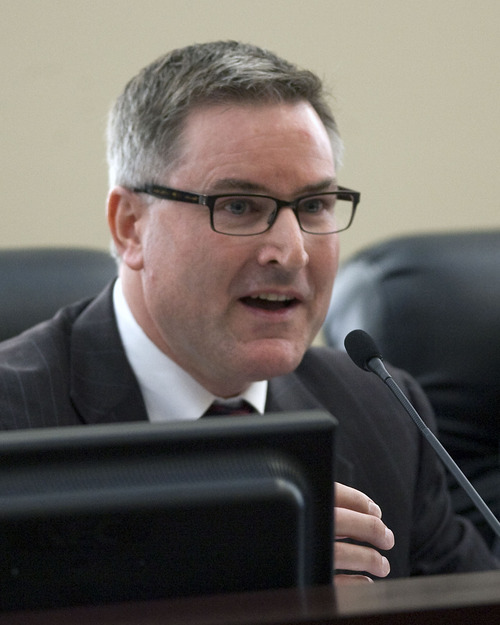This is an archived article that was published on sltrib.com in 2011, and information in the article may be outdated. It is provided only for personal research purposes and may not be reprinted.
It took three years to build Utah's open records act. It took three days to dismember it.
Then another two weeks to spike an amendment that would have deeply altered the 1991 Government Records Access and Management Act, which for two decades has given Utahns a relatively easy and inexpensive way to know what their government is doing and why.
Attorney Kate Lahey played a crucial role in GRAMA's creation. Representing a news media coalition, she served on a bipartisan committee that met with state attorneys and dozens of interested parties, held countless meetings and did plenty of fine-tuning and "fancy drafting" to come up with a bill.
"There was a lot of give and take, a lot of real respect among the people on the committee," she says.
Nevertheless, it took three years to finally hammer out GRAMA, which was approved in 1991 but suspended for another year for more tinkering to account for everything from law enforcement issues to the University of Utah's technology records.
All that was quite the opposite of this year's HB477, which was drafted secretly, introduced on March 1, given only fleeting attention in House and Senate committees and passed without amendment on March 4.
"It's just like buying clockwork and jamming your screwdriver in there and just sort of popping this wheel off, this little cog off," Lahey says.
Lawyer Jeff Hunt, like Lahey an expert on First Amendment and media law, inherited her mantle in the early 1990s. He's been involved in GRAMA issues ever since, but didn't have a clue about HB477 until the evening of March 1, when he got a phone call while leaving the Cathedral of the Madeleine. Something's up with GRAMA, the caller told him.
Seventy-two hours later, HB477 was passed by the overwhelmingly Republican Legislature and the governor signed it, only to eventually call a special session.
Among other things, backers of the new bill have said it would open their private lives to public scrutiny, and that the burden of proving that records should be released and paying for access should rest with the record seekers.
Lahey and Hunt scoff at the notion that somebody's grocery list or their calls to family would be a public record, or that their tax returns would land on a newspaper's front page.
"One of the more disturbing things about HB477 is that it's fairly clear to me that even the sponsors aren't familiar with GRAMA," Lahey says. "The things that they're saying, 'We can't be releasing this,' never would have been released in the first place."
The argument that GRAMA is outdated, particularly in the light of emerging communication technologies, also doesn't fly, Hunt says. It's not about the method of communicating, but the context. If it involves the public's business, it should reside in a record that's available to the public.
Besides, Hunt says, GRAMA has been the subject of 160 proposed amendments over the years, many of them adopted.
"There's been something every year," he says. "But we had discussions about it, and headed off bad ideas."
Hunt also doesn't buy invocation by some lawmakers of the Fourth Amendment of the U.S. Constitution, which involves "the right of the people to be secure in their persons, houses, papers and effects against unreasonable search and seizure...."
"That does not apply to government records — public information — which belongs to us," he says. "We own the government. It's all about the fundamental relationship between the people and the government."
But the repeal of HB477 (immediately followed by legislators' squabbling over when to call yet another costly special session) doesn't mean the assault on the public's rights to government records is over.
A "working group" of 25 people is on track to come up with answers to questions about GRAMA, possibly in five or six weeks. It does seem odd, however, that the group meets on Wednesdays at the Capitol; if its leaders want to include the public, maybe a Saturday or two at a more neutral venue would be the right thing to do.
It is heartening to know how many Utahns of all stripes have conveyed their anger and disappointment to the Legislature. And maybe, just maybe, it has awakened lawmakers to the fact that they work for the people, who pay their salaries and per diems and insurance premiums. And who, more importantly, expect excellence, not arrogance or willful ignorance, from those they vote into office.
Peg McEntee is a news columnist. Reach her at pegmcentee@sltrib.com.







